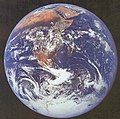Difference between revisions of "Chem321:Discussion 4"
Haw7thorne (talk | contribs) (→Laws of conservation of matter and energy) |
Haw7thorne (talk | contribs) (→Laws of conservation of matter and energy) |
||
| Line 8: | Line 8: | ||
| − | *I think that the lesson that is most apparent, at least from my particular perspective, and in considering both Hill as well as the Unit 2 & 3 ppt. which focus on the ideas of sustainability and energy, is that where energy is not destroyed only dissipated, and in utilizing various technological advancements, that it is entirely possible to re-direct the flow of dissipated energy such that we are constantly redistributing and reabsorbing rather than discharging it. For instance, and in reference to our scenario involving ACME Chemical, much of the waste produced by plants like ACME is redirected or reused. I think that if we consider energy in the same way, much like the way in which energy is contained in and flows from an ocean wave, we can actualize a more efficient management of the energy produced through renewable rather than non-renewable resources like petroleum thereby decreasing the negative impact on the ecosystem.[[User:Haw7thorne|Haw7thorne]] ([[User talk:Haw7thorne|talk]]) | + | *I think that the lesson that is most apparent, at least from my particular perspective, and in considering both Hill as well as the Unit 2 & 3 ppt. which focus on the ideas of sustainability and energy, is that where energy is not destroyed only dissipated, and in utilizing various technological advancements, that it is entirely possible to re-direct the flow of dissipated energy such that we are constantly redistributing and reabsorbing rather than discharging it. For instance, and in reference to our scenario involving ACME Chemical, much of the waste produced by plants like ACME is redirected or reused. I think that if we consider energy in the same way, much like the way in which energy is contained in and flows from an ocean wave, we can actualize a more efficient management of the energy produced through renewable rather than non-renewable resources like petroleum thereby decreasing the negative impact on the ecosystem.[[User:Haw7thorne|Haw7thorne]] ([[User talk:Haw7thorne|talk]]) 21:44, 16 July 2013 (EDT)[[User:Haw7thorne|Haw7thorne]] ([[User talk:Haw7thorne|talk]]) |
==Limitations== | ==Limitations== | ||
Revision as of 21:44, 16 July 2013
WORLD (Chemistry 321) |
| MAIN PAGE |
|---|
| Syllabus — Schedule |
| Welcome page Contact Dr. Walker |
| This week |
| Today's tasks — (tomorrow) |
| Course units 1 - 2 - 3 - 4 - 5 - 6 - 7 8 - 9 - 10 - 11 - 12 - 13 - 14 |
| Moodle site |
|
|
| Course content |
| Assignments Paper - Acme - 1 - 2 - 3 - 4 - 5 |
| Practice problems |
| Discussions |
|
|
| General wiki help |
| Basic editing Create an account Protocols Tutorial Demo, for practice |
This discussion is based on discussing three questions, and it is set to take place on the wiki, over the next few days (until midnight on Wednesday, 17th July). Please leave one original answer to each question on the page below, then also a total of two comments in response to (and under) the comments by other students. Be sure to start your text with a *, and sign your responses with four tilde marks at the end.
Laws of conservation of matter and energy
Classical laws of chemistry and thermodynamics tell us that neither mass and energy cannot be destroyed; both are conserved during any physical or chemical process. (Strictly speaking we should use a combination of mass-energy when talking about nuclear reactions, but these are rare on Earth.)
What can we learn from the conservation of mass and conservation of energy when considering global resources of mass and energy?
- I think that the lesson that is most apparent, at least from my particular perspective, and in considering both Hill as well as the Unit 2 & 3 ppt. which focus on the ideas of sustainability and energy, is that where energy is not destroyed only dissipated, and in utilizing various technological advancements, that it is entirely possible to re-direct the flow of dissipated energy such that we are constantly redistributing and reabsorbing rather than discharging it. For instance, and in reference to our scenario involving ACME Chemical, much of the waste produced by plants like ACME is redirected or reused. I think that if we consider energy in the same way, much like the way in which energy is contained in and flows from an ocean wave, we can actualize a more efficient management of the energy produced through renewable rather than non-renewable resources like petroleum thereby decreasing the negative impact on the ecosystem.Haw7thorne (talk) 21:44, 16 July 2013 (EDT)Haw7thorne (talk)
Limitations
Science is clearly valuable when studying the environment. What do you perceive as the limitations of science in this context?
Wonder tech
If you had $50 billion to spend on developing some new technology, what would you choose, and how would you spend the money?
